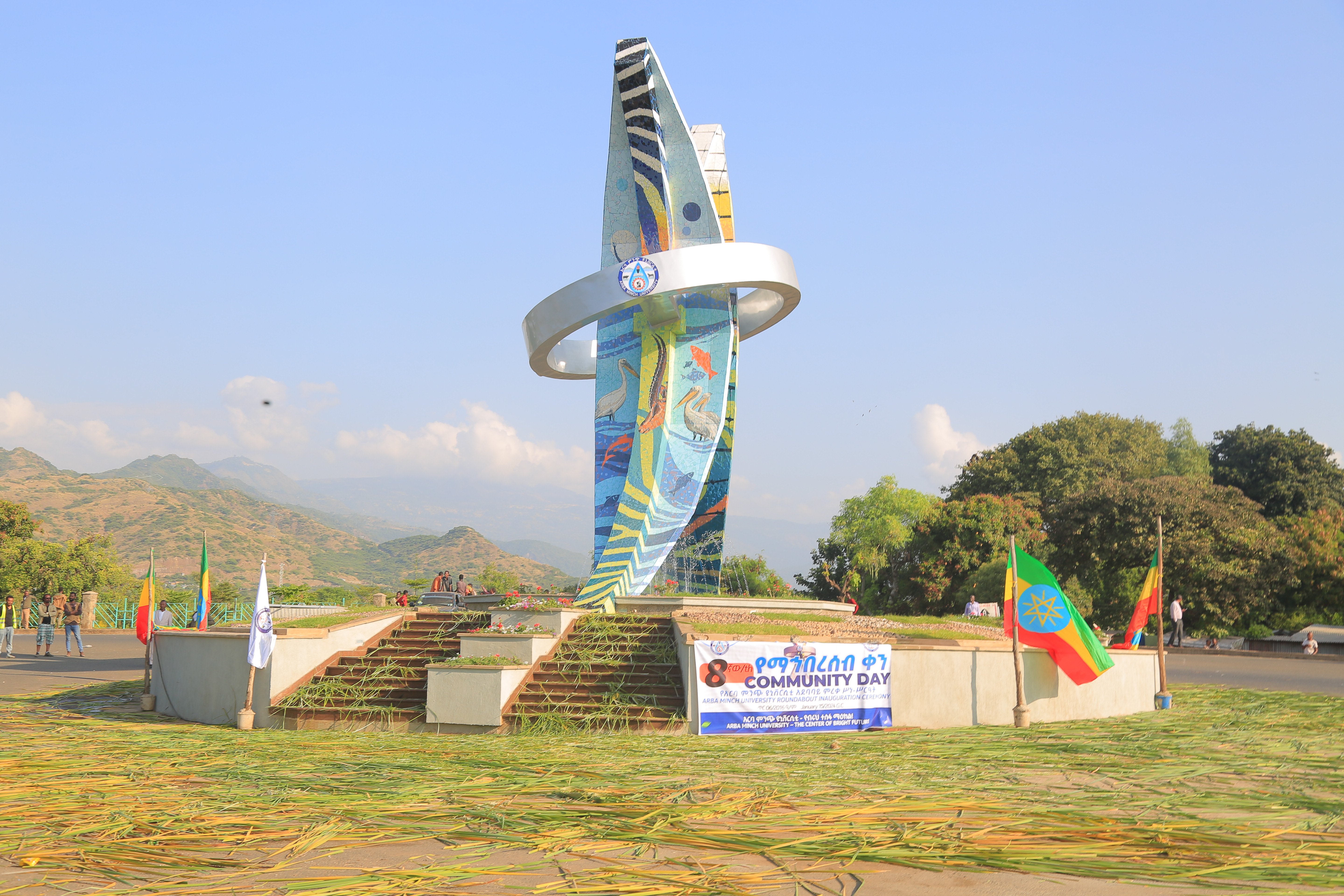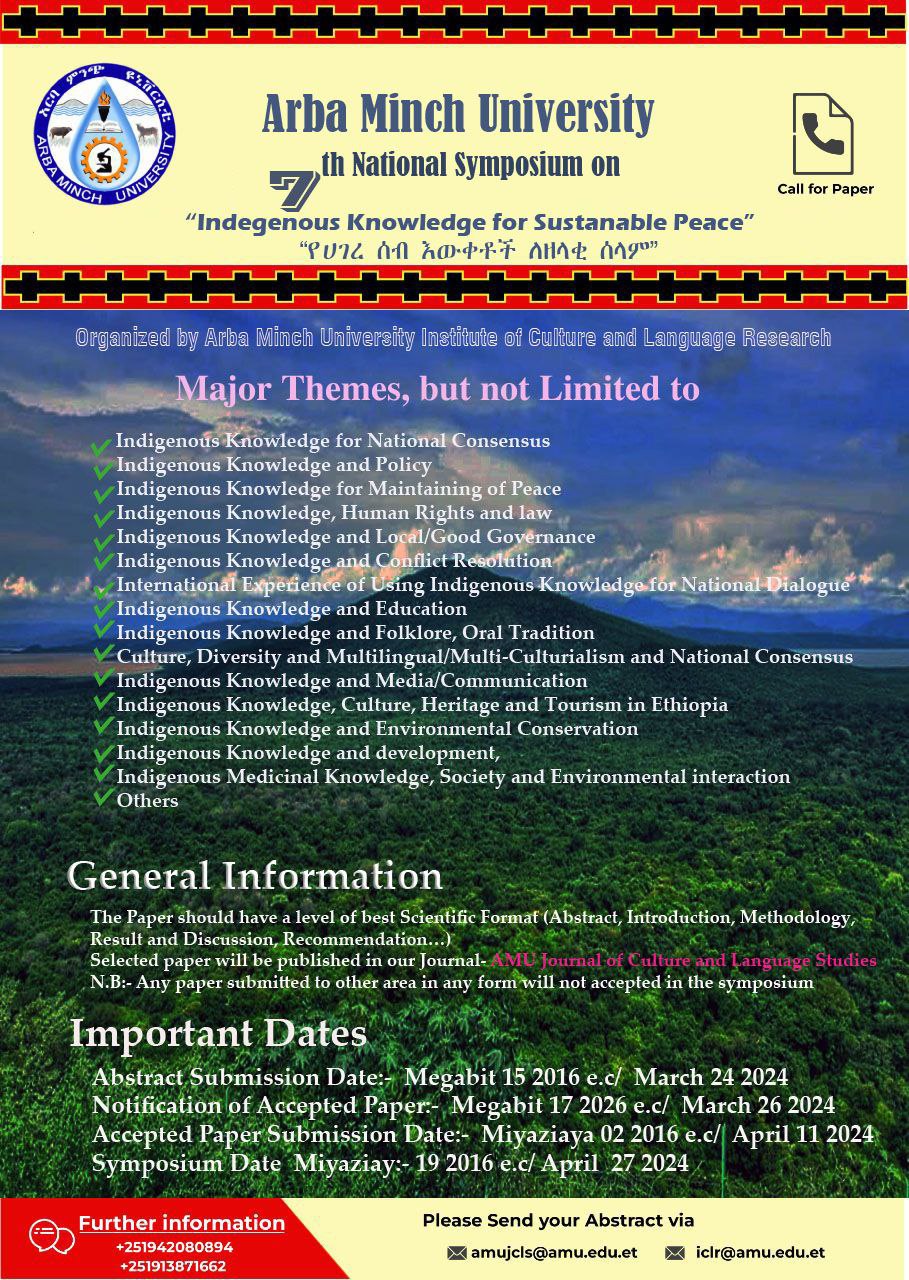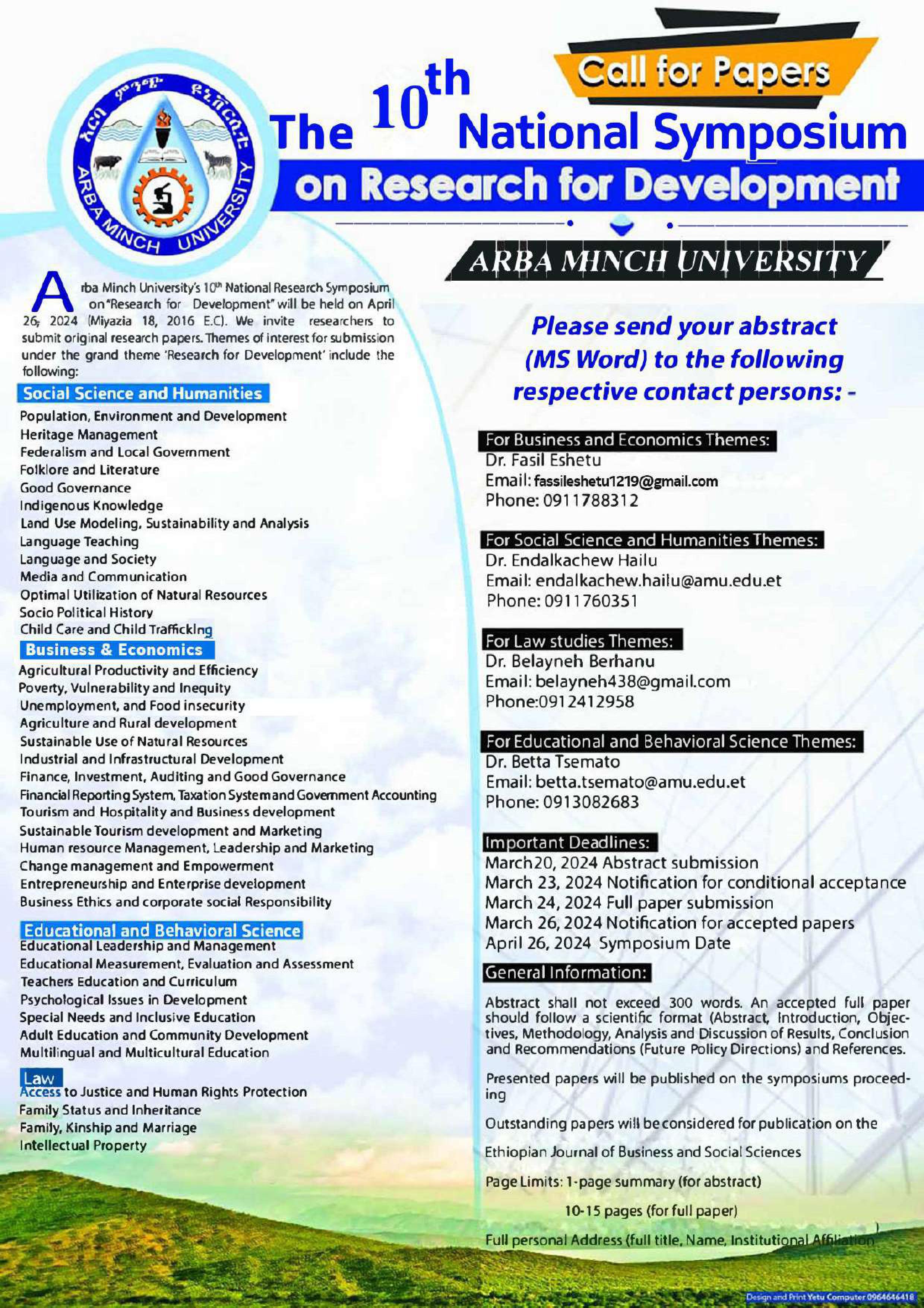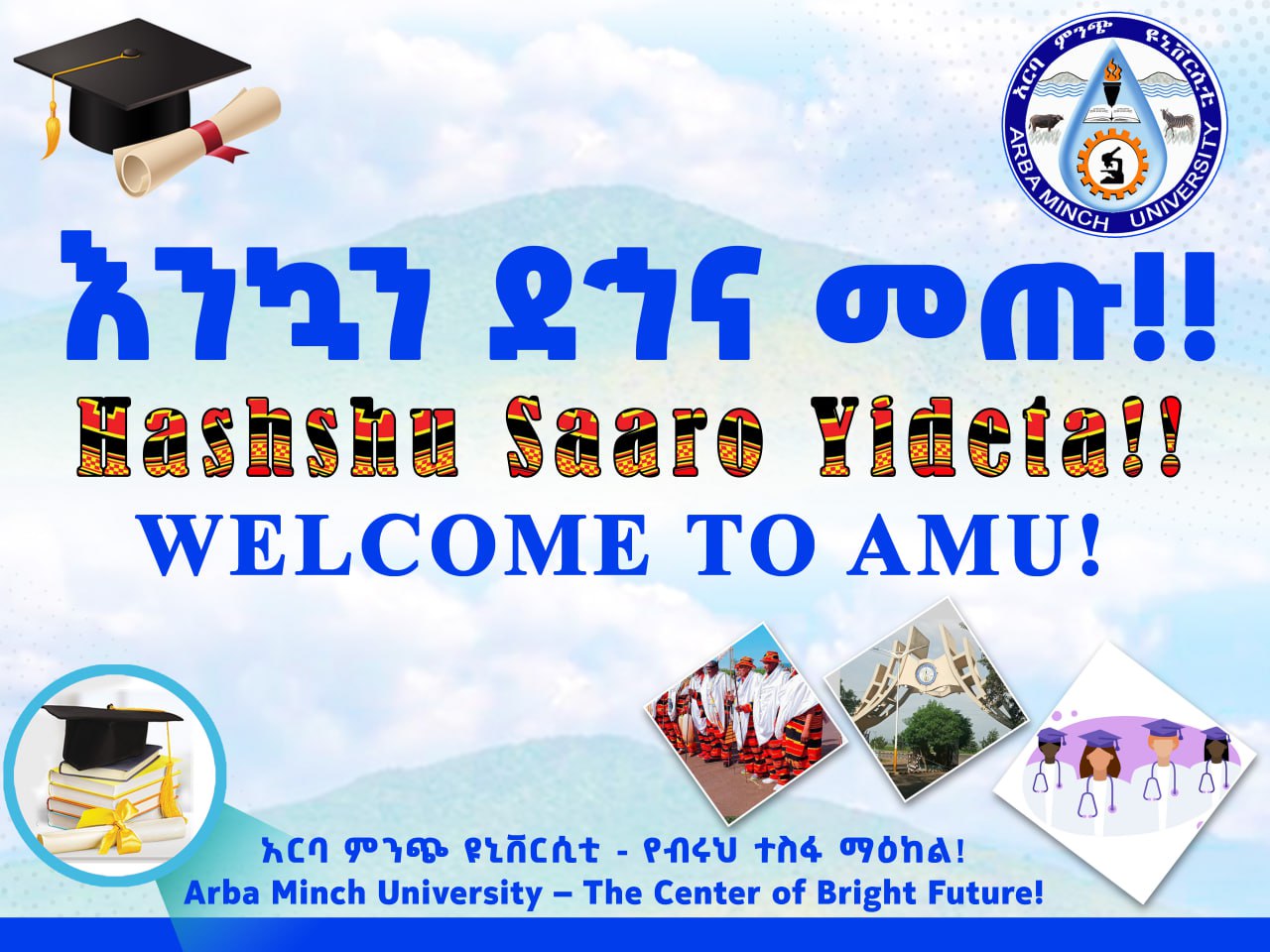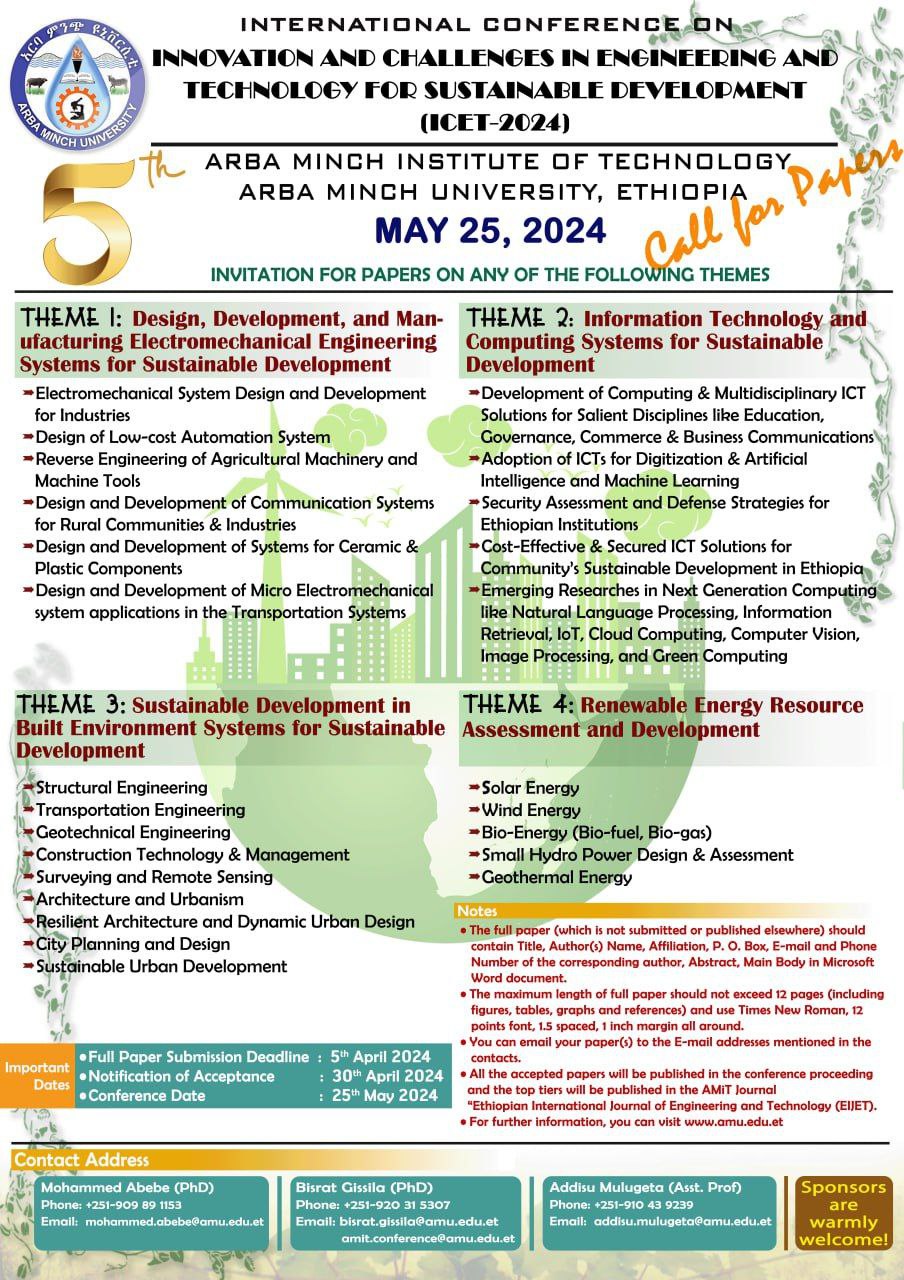Arba Minch University’s Institute of Technology has conducted 2nd national conference on ‘Innovation and Challenges in Engineering and Technology for Sustainable Development’ at Main Campus from 16th to 17th June, 2021. Click here to see the pictures
The program got off to musical start with Arba Minch Town Cultural Band rendering ethnic numbers. Of total 21 papers, 17 were oral and 4 poster presentations revolving around 4 thematic areas focusing on electrical & mechanical engineering, computer science & IT, civil engineering, architecture and urban planning and electrical & mechanical engineering of which AMU has 2.
Arba Minch Institute of Technology’s delegated Scientific Director, Dr Muluneh Lemma, according warm welcome to the gathering, said, our purpose in organizing such events is to potentially engage institute’s local staff, expatriates and professionals from different institutions to showcase research findings. Presently, we are focusing on multi-disciplinary research undertakings and on theme from Renewable Energy Technology Research, where our professionals need to address what’s lacking in the domain of problem-solving research which is primarily mandated and expected to cater to the emerging needs of our communities and nation per se.
AMU President, Dr Damtew Darza, emphasizing the significance of research and scientific application in every spheres, said, such platforms are crucial in generating knowledge and innovative technologies that plays great role in automation and advancement in scientific arena. It ignites scientific debates that churn out path-breaking ideas which enable us in approaching complex issues at hands with the great sense of precision, individual and collective maturity and unique intellectual insight that I feel ultimately bring forth or expose innovative and rationale channels before us which will enable us to unravel multiple esoteric scientific mysteries in easily understandable research findings, he quipped.
The keynote speaker, Associate Prof. Fasil Giorgis, chair holder of Conservation of Urban & Architecture Heritage, Addis Ababa University, informed that Ethiopia’s 20% population live in urban areas which are often detached from agriculture infrastructure that prevents sustainable development in the country. Our 80% people reside in rural parts that have to be developed for they are pivotal in inclusive development. Hence, we must invest in human capital and cost-efficient project where wealth distribution is better.
We have professionals but real impact will come when education sector have quality with relevance governing both technical and higher education. Rural and semi-rural communities need to be enabled for good governance where people and private sectors have access to finance and management training. More importantly, institutional support, intensive application of research in private sector, entrepreneurial spirit, personal commitment, perseverance and one-window disposal practice will bring change in nation, he stressed.
1st presenter from Kotebe Metropolitan University, Mr Mekonnen Amberber, speaking on dynamics of built environment, said, that rapid urbanization and increasing urban heat island intensity impact urban green infrastructure needs mitigation and climate resilience measures. And of 2 AMU presenters, one focused on laboratory test value prediction using Gaussian processes regression while other spoke on prospect to improve energy efficiency.
The program was punctuated with discussions on research findings pertaining to myriad issues; AMU officials, staff, researchers; scholars from Addis Ababa, Dilla, Mekelle, Ambo, Assosa, Debre Markos, Debre Berhan, Madda Walabu, Hawassa, Bule Hora, Samara, Kotebe Metropolitan, Wolkite and Debre Tabor universities, officials from Gamo Zone and different stakeholders were in attendance.
Business establishments i.e. Bright Construction, TNT Construction & Trading, Yirgalem Construction Plc, MODCON Engineering, QTC Engineering Consultancy Plc, Gamo Building Materials Shop, Omedad, Tilahun Abebe General Construction and Printing Advert & General Trading sponsored the program.
(Communication Affairs Directorate)
